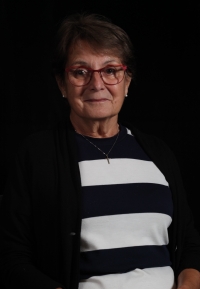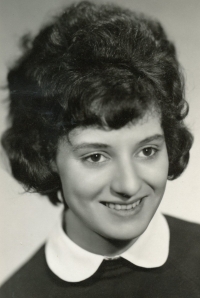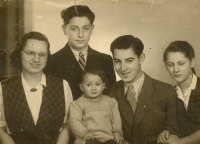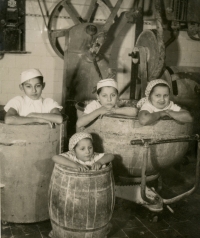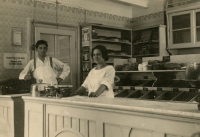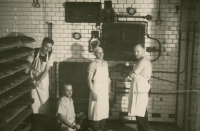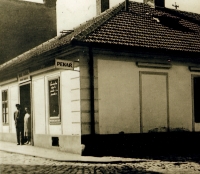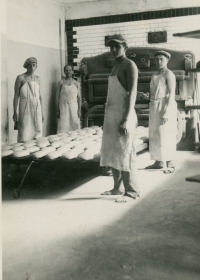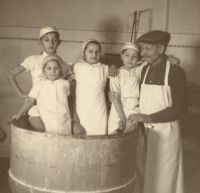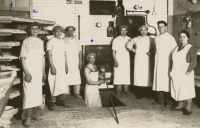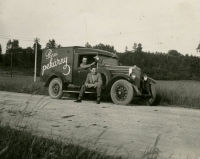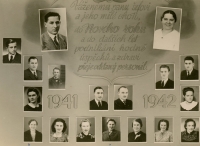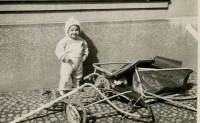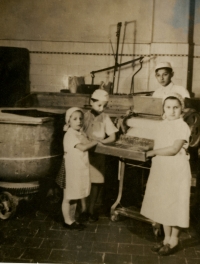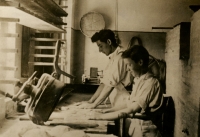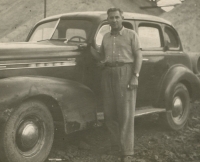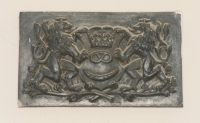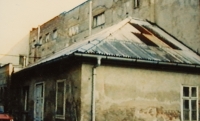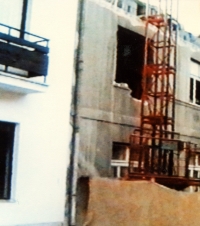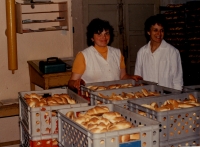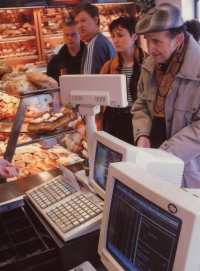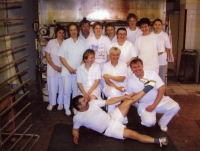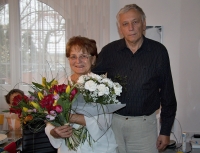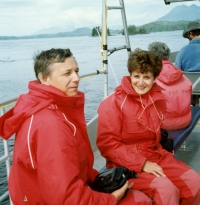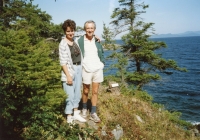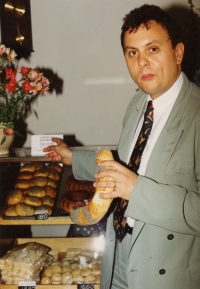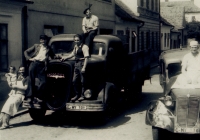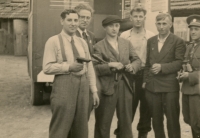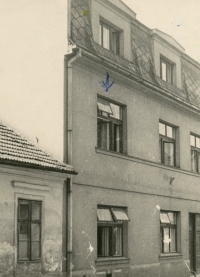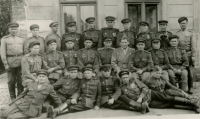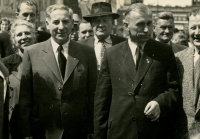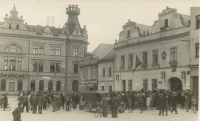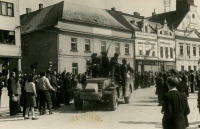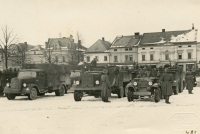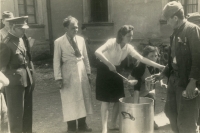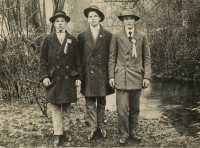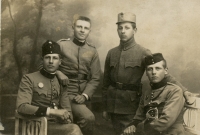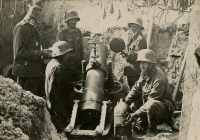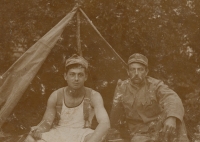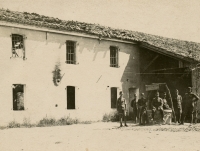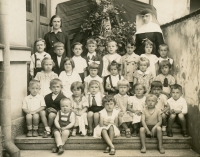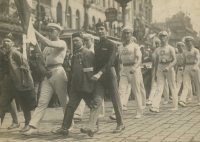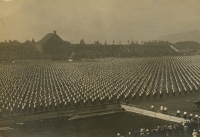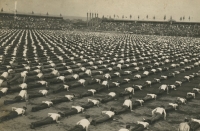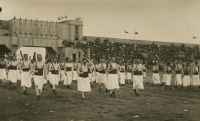After the revolution they bought a colour TV to see how communists grow pale

Download image
Jiřina Duchoslavová was born on 31 January 1946 in Vysoké Mýto as the youngest of five children into the Smékalovi family of bakers. When her father saw the way things were going in post-war Czechoslovakia, he voluntarily rented his bakery to Jednota. He hoped he will stay there as the head but he was fired after a year anyway. In autumn 1948 the witness’s brother Jaroslav Smékal emigrated and State Security started to be interested in her father. He escaped the arrest and left to build new Ostrava. He came back to Vysoké Mýto only in the middle of 1950s. Her other brother Josef and his pregnant wife were arrested. Josef came back only after two years. The stress from those event that affected the family from war years until the 1950s left its marks on the health of her mother who died suddenly in 1958. The then twelve years old Jiřina was left alone with her father, the background profile did not allow her to study at any secondary school and she had to go to work immediately after the ninth year. In a hospital in Litomyšl, she started as a cleaning lady and later they allowed her to study secondary medical school. As a nurse she had worked in hospitals and surgeries until 1990 when she requested the return of the family bakery in restitution. The renewal of the Smékal’s bakery took them many years and aside from huge financial means it cost them her and her husband’s health. In 2015 she handed the company over to her son-in-law. In 2021 Jiřina Duchoslavová lived with her husband in Vraclav near Vysoké Mýto.
